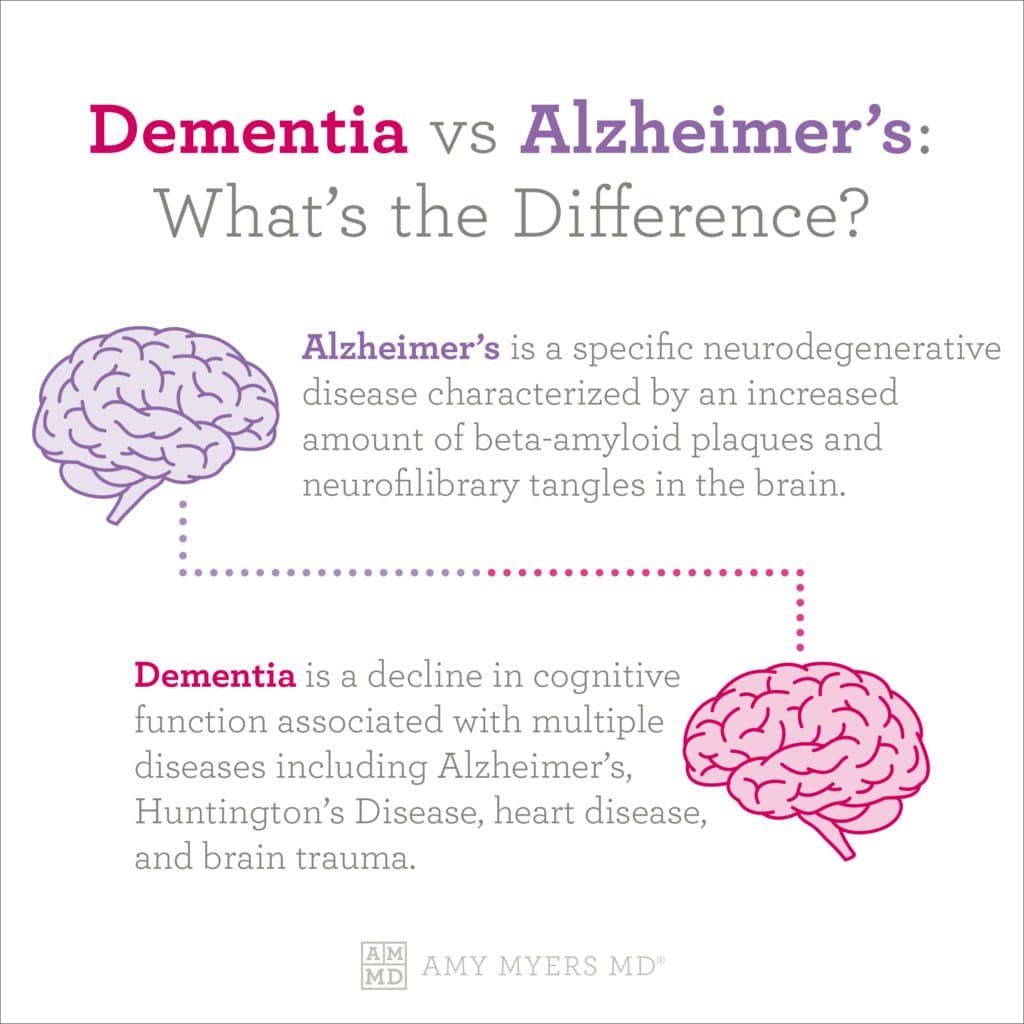Dementia vs. Alzheimer’s
In our previous blog post, we defined dementia and how to identify signs if your loved one is experiencing memory loss. This week, we want to further explore the most commonly known form of dementia, Alzheimer’s Disease.
Not everyone knows there is a difference between dementia and Alzheimer’s, and can often use the terms interchangeably. Dementia is a general or “blanket” term that represents an umbrella of memory and reasoning skills symptoms. There are many different types of dementia, with justone of those being Alzheimer’s. This is a specific brain disease that accounts for 60-80 percent of all dementia cases. Alzheimer’s is not something that normally occurs in the aging process, but is a disease that is caused by complete brain changes following cell damage. Over time, the person’s memory and other cognitive skills decline.
We see three stages of Alzheimer’s that slowly progress over time:
Early or Mild Stage:
Early in the disease process, a loved one may function very independently. It may be seen in simple activities or small lapses of memory. They may forget material that was just read, fail to come up with the right words in conversation, lose or misplace keys or other objects.
Middle or Moderate Stage:
This is described as the longest stage of Alzheimer’s, sometimes lasting for many years. At this stage, the person will require more diligent care and attention as it progresses. The individual may become frustrated or angry when daily tasks become increasingly difficult to remember. They may start to display irritable behavior or become more withdrawn in social situations. They commonly become confused about specific details or events and have trouble executing daily tasks like going to the restroom, dressing, bathing, or maintaining a normal sleep pattern
Late or Severe Stage:
In this final stage, the symptoms are severe. This person will have trouble communicating in full sentences and engaging during activities or conversations becomes very difficult. The cognitive skills continue to worsen, and around-the-clock care may be necessary.
It is important to remember that Alizheimers and other forms of Dementia present differently in each person. Some experience sharper declines while others spend lengthy periods of time in each stage. The best way a family can support their loved one is through educating themselves about the disease process and by having a care plan in place should the needs become too great to handle on their own.
At Westminster Memory Care, we firmly believe that what remains is far more important than what is lost. We are driven to deliver the highest level of Memory Care and service to our residents and their families. If you’d like to learn more about how Westminster Memory Care can partner with your family, download a free informational brochure by clicking the button below.

